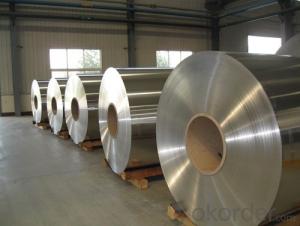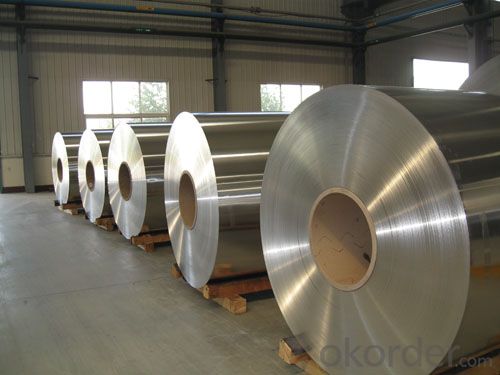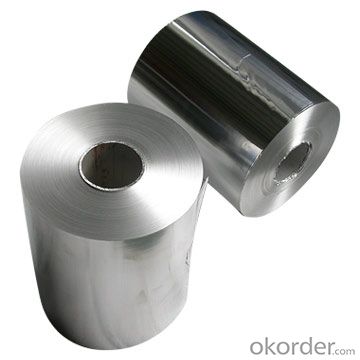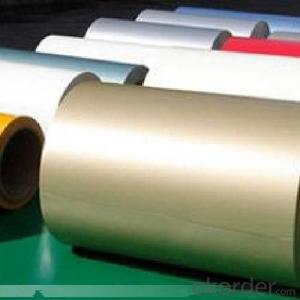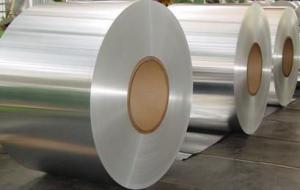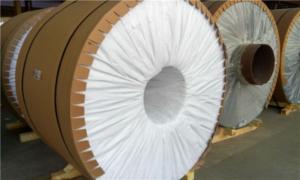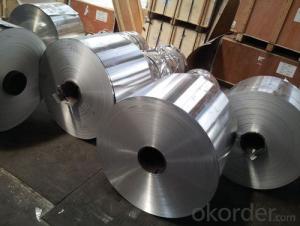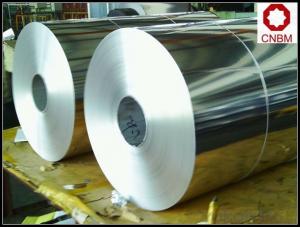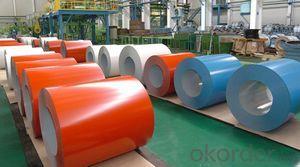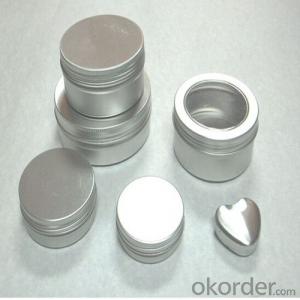Paul Frost 1100 5052 Mirror Cost Insulation Aluminum Coils
- Loading Port:
- Shanghai
- Payment Terms:
- TT OR LC
- Min Order Qty:
- 5 m.t.
- Supply Capability:
- 6000 m.t./month
OKorder Service Pledge
OKorder Financial Service
You Might Also Like
Specification
1100 5052 Mirror Cost Insulation Aluminum Roll
Applications:
Aluminum foil roll is widely used in construction,decoration,hardware,
electric appliances,machinery and other industrial and civil purposes,
such as electronic capacitor,composite cooker,rice cooker,refrigerator,
computer casting,telecommunication,equipment,lamp shade,air conditioner,
cosmetics cover and so on.
Or it can be made as customers’ requirement.
Specifications
color aluminum coil
1000 series 1100 10160 1200
surface could be: Brushed, drawing, embossed, printing
color: red,
color aluminum coil
.Alloy type: 1050/1060/1100/1350
2.Temper: H16, H18, H22, H24
3.Thickness range: 0.1mm-4mm
4.Width range: 25mm-1600mm
5.Surface:finish: bright & smooth surface, without flow lines, slight oiled to avoid white rusting.
6.Quality material:totally free from such defefects as roll marks, edge damager, camber, white rust, oil patches, holes, break lines,
color aluminum coil
Name |
color aluminum coil |
Alloy or not | yes |
Alloy | 1100H16/18, 3003H24,3003H26,3005H26,8011,3004,3105,5005,etc. |
Thickness | 0.1-4mm |
Width | ≤1600mm |
MOQ | 5T |
Coating finish | Brushed, drawing, embossed, printing |
Color | As to code RAL |
Surface | Embossed,Mill Finish,Coated,Brushed |
Gloss | 10-90%(EN ISO-2813:1994) |
Total coating thick | PVDF27 ~35micron |
Polyester18~27micron(EN ISO-2360:1995) | |
Coating hardness | 2H |
Adhesion | 5B (EN ISO-2409:1994) |
Impact resistance | No cracking and peeling (A.S.T.M D2794-1993) |
Flexibility (T-bend) | 0T- 2T |
MEK resistance | 100 |
Certification | ISO9001:2000, CE, SGS |
Coil's standard diameter | 1100mm |
Inner Diameter | 405mm/505mm |
Coil's standard weight | 2000kgs |
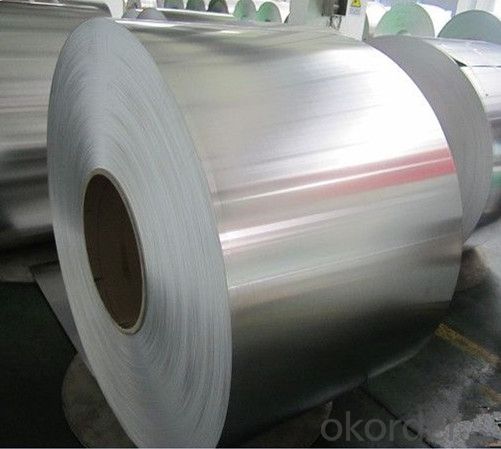
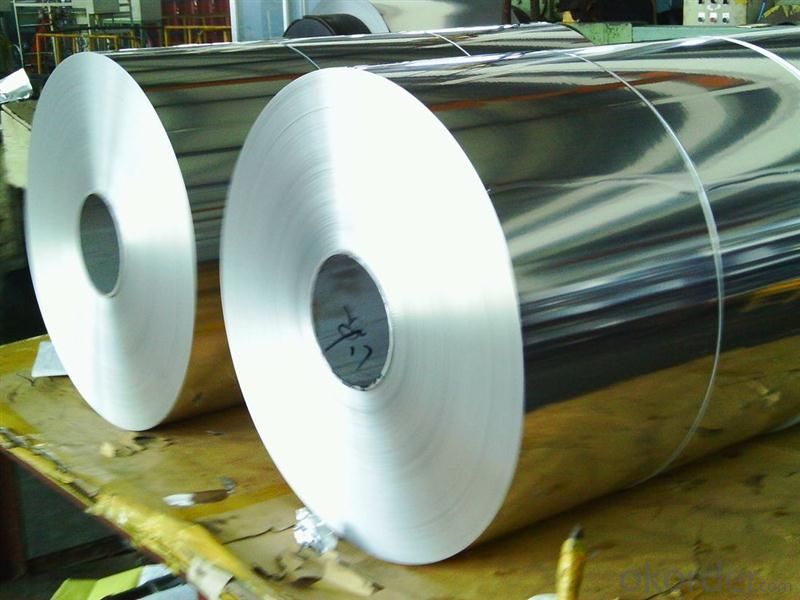
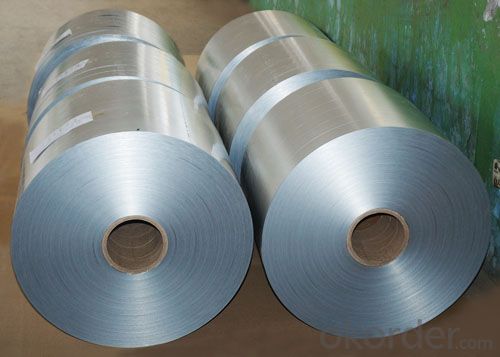
- Q: Are aluminum coils suitable for architectural applications?
- Yes, aluminum coils are suitable for architectural applications. Aluminum is a highly versatile and durable material that is commonly used in the construction industry for various architectural applications. Aluminum coils offer several advantages for architectural use, including their lightweight nature, corrosion resistance, and ability to be easily formed into desired shapes and sizes. These coils can be used in architectural applications such as roofing, cladding, facades, and gutters, among others. Additionally, aluminum coils can be coated with different finishes, providing a wide range of aesthetic options for architects and designers. Overall, aluminum coils are an excellent choice for architectural applications due to their strength, durability, and flexibility.
- Q: What are the different edge profiles available for aluminum coils?
- Aluminum coils offer various edge profiles to cater to specific needs and preferences. The options include: 1. Square Edge: This simple profile has sharp corners and a flat surface, often used in functional industrial applications. 2. Round Edge: With a curved surface that eliminates sharp corners, this profile ensures safety and is commonly used in automotive and playground equipment. 3. Beveled Edge: This profile boasts a sleek and modern look with its slanted or angled surface, making it popular for architectural purposes and reducing the risk of injuries. 4. Full Radius Edge: Featuring a smooth, rounded surface along the entire coil length, this profile minimizes the risk of damage or scratching when in contact with other materials. 5. Hemmed Edge: By folding the edge back onto itself, this profile creates a double layer of metal, providing a strong and durable edge for appliances and cabinets. 6. Tapered Edge: Gradually narrowing the coil's width towards the edge, this profile adds visual interest and a dynamic appearance, often chosen for architectural or decorative purposes. It's important to consider that the availability of these edge profiles may vary among manufacturers and depend on the intended application. Consulting with the supplier or manufacturer is recommended to determine the specific edge profiles available for a particular coil.
- Q: What is the difference between hot-rolled and cold-rolled aluminum coils?
- The main difference between hot-rolled and cold-rolled aluminum coils lies in the production process. Hot-rolled aluminum coils are produced at high temperatures, which makes them more malleable and ductile. This process also results in a scaly surface finish. In contrast, cold-rolled aluminum coils are processed at lower temperatures, making them harder and more rigid. Cold-rolled coils have a smoother and more polished surface finish. Ultimately, the choice between hot-rolled and cold-rolled aluminum coils depends on the specific application and desired properties.
- Q: Is it safe or practical to utilize aluminum coils in kitchen settings?
- <p>Aluminum coils can be used in the kitchen, but with certain considerations. They are often used in cookware due to their excellent heat conductivity, which allows for even heating. However, there are concerns about aluminum leaching into food, especially at high temperatures or in acidic environments, which could potentially have health implications. It's recommended to use aluminum cookware with a protective coating or to opt for cookware made from other materials like stainless steel or cast iron if there are health concerns. Always check the manufacturer's guidelines for safe usage and cleaning to ensure longevity and safety.</p>
- Q: How to sell the super hard 5083aluminum alloy and 5083 aluminum coil?
- Among the alloy which cannot endure heat treatment, 5083 aluminum alloy, a kind of high magnesium alloy, has the properties of intensity, machinability, anti-corrosion, electric-arc weldability and aesthetic after anodizing. The main element of 5083 alloy being magnesium, it is endowed with corrosion resistance, weldablility and moderate intensity, thus applicable to maritime areas such as ships, and cars, airplane weldments, metro light rail, and pressure vessel (such as liquid tank truck, refrigerated truck, refrigerated container), refrigerating equipment, television tower, drilling equipment, transport facility, missile parts, armor and so on.
- Q: What are the potential applications of coil-coated aluminum coils?
- Coil-coated aluminum coils have a wide range of potential applications due to their versatility and durability. Some common applications include roofing and cladding for buildings, automotive parts, signage, electronics, and appliances. The coil coating process enhances the aluminum's resistance to corrosion, weathering, and fading, making it suitable for both indoor and outdoor uses. Additionally, the ability to apply various colors and finishes to the coils allows for customization and aesthetic appeal in different industries.
- Q: What is the impact of alloy purity on the performance of aluminum coils?
- The impact of alloy purity on the performance of aluminum coils is significant. Higher alloy purity leads to improved conductivity, strength, and corrosion resistance of the coils. It also enhances the overall efficiency and longevity of the coils. Conversely, lower alloy purity may result in reduced performance, lower conductivity, and increased susceptibility to corrosion. Therefore, ensuring high alloy purity is crucial for maximizing the performance and durability of aluminum coils.
- Q: Is it possible to create personal roofing material using aluminum coils?
- <p>Yes, you can use aluminum coils to make your own roofing material. Aluminum is a popular choice due to its durability, lightweight, and resistance to corrosion. To create roofing material, you would need to cut the coils to appropriate lengths, form them into panels, and possibly add protective coatings or finishes. However, this process requires specialized equipment and knowledge of roofing construction to ensure the material is safe, watertight, and structurally sound. It's also important to consider local building codes and regulations that may affect the suitability of homemade roofing materials.</p>
- Q: Can aluminum foil coil be stores for a long time?
- It is ok within one or two years, but for five or six years, it will be oxidized.
- Q: Are there any limitations on the length of aluminum coils?
- Yes, there are limitations on the length of aluminum coils. The length of aluminum coils is typically limited by practical considerations, such as transportation and handling capabilities. Additionally, longer coils may become more susceptible to bending, warping, or other forms of damage. Consequently, manufacturers often have specific maximum length specifications for aluminum coils.
Send your message to us
Paul Frost 1100 5052 Mirror Cost Insulation Aluminum Coils
- Loading Port:
- Shanghai
- Payment Terms:
- TT OR LC
- Min Order Qty:
- 5 m.t.
- Supply Capability:
- 6000 m.t./month
OKorder Service Pledge
OKorder Financial Service
Similar products
Hot products
Hot Searches
Related keywords
